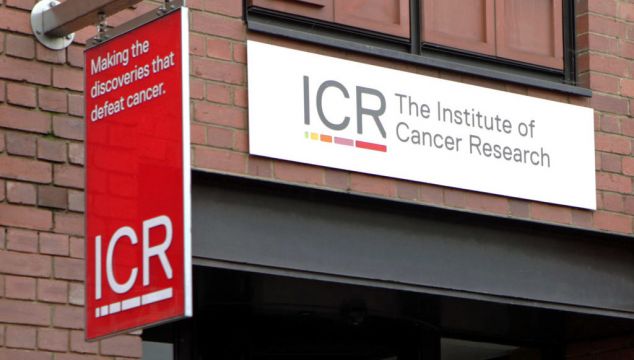Researchers say they have solved a 20-year mystery that could speed up the development of a new class of cancer drugs.
A new study has revealed what scientists call a traffic light mechanism controlling genetic activity within cells.
According to the experts, this system could potentially be targeted by cancer drugs already in development.
The research suggests epigenetic changes to the structure of DNA can act as a stop-go signal in determining whether a gene should be read.
These epigenetic “traffic light” signals are crucial for normal cell development, but have been linked to leukaemia, breast, bowel and pancreatic cancers.
Epigenetics affects gene activity, or expression, without changing the underlying genetic code.
While our genetic make-up is well understood, the world of epigenetics is still largely unexplored.
The Institute of Cancer Research, London (ICR) scientists say their textbook discovery transforms the understanding of how epigenetic proteins help regulate cell development and can be involved in cancer.
Additionally, they change the understanding of how the process of gene expression – decoding DNA into functional proteins the body uses – is regulated, and how blocking epigenetic proteins could affect both normal and cancerous cells.
Study leader Professor Kristian Helin, chief executive of ICR, said: “Our study offers a fundamental new understanding of epigenetics, a very exciting and still largely underexplored area of cancer research.
“We have solved a 20-year-old puzzle by discovering how a well-known epigenetic modification controls gene expression.
“Because the enzymes determining the level of (key epigenetic signal) H3K4me3 in the cell frequently are found mutated in cancer, our studies could have implications for understanding and treating cancer.
“This is what I call ‘textbook’ science – the aspiration of many scientists, including myself, to solve fundamental questions so that our discoveries go into textbooks.
“Even the most cutting-edge treatments for patients are built on the foundations of fundamental scientific discoveries like this one.
“It is only thanks to basic understanding of how our genes and cells work, and what can go wrong with them, that we can create the cancer treatments of the future.
“Drugs targeting these ‘traffic lights’, or epigenetic modifications, such as H3K4me3, are already being developed – and it is possible that they could one day become an effective way of treating cancer patients.
“This is an exciting new avenue for cancer research, and we believe our findings will pave the way for more effective development of these epigenetic drugs.”
The study found that H3K4me3 determines when and how DNA should be read and translated into proteins within our cells.
According to the research in mouse model stem cells, H3K4me3 ensures genes are activated at the right time in a controlled manner, like a set of traffic lights regulating the flow of cars on a busy road.
Understanding how it works in normal cells can also shed new light on the development of cancer – and the role played by a breakdown in the regulation of gene activity.
It has been known for more than 20 years that the enzymes placing H3K4me3, a chemical tag added to DNA, are crucial for normal cell development.
But, until now, scientists lacked an understanding of what the chemical tag does.
The findings are published in the Nature journal.







